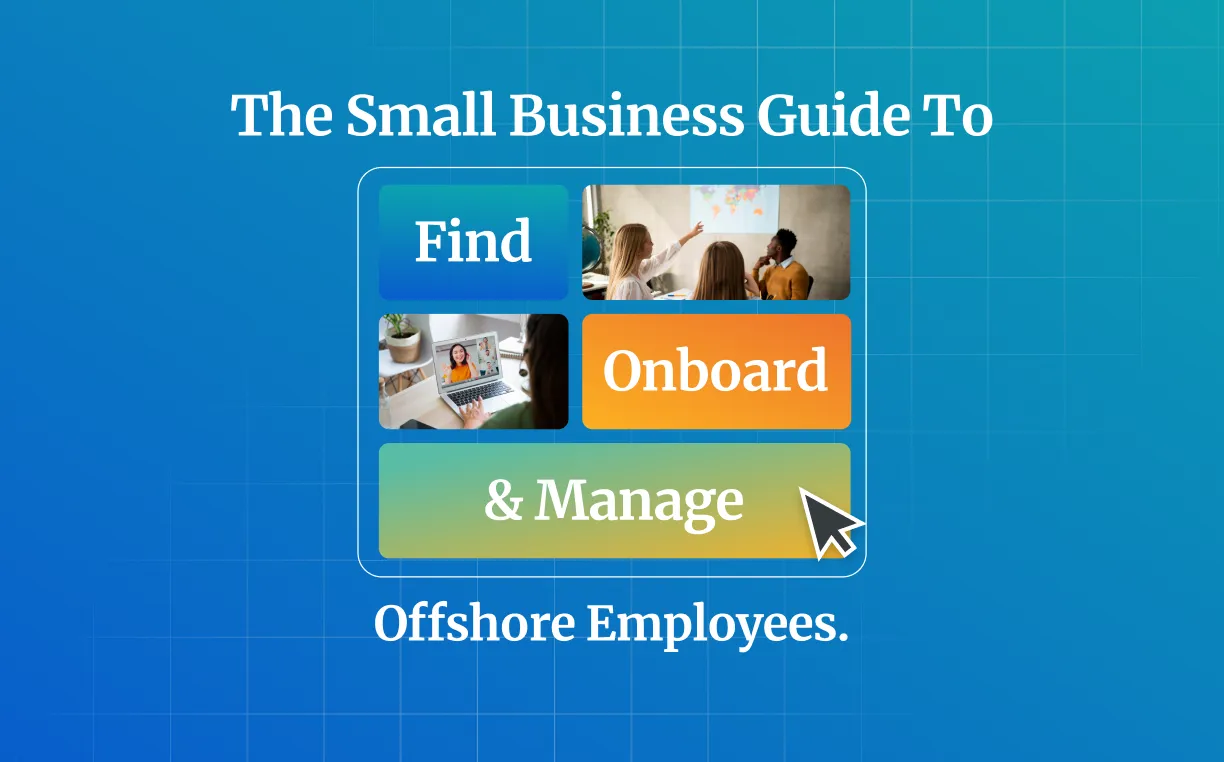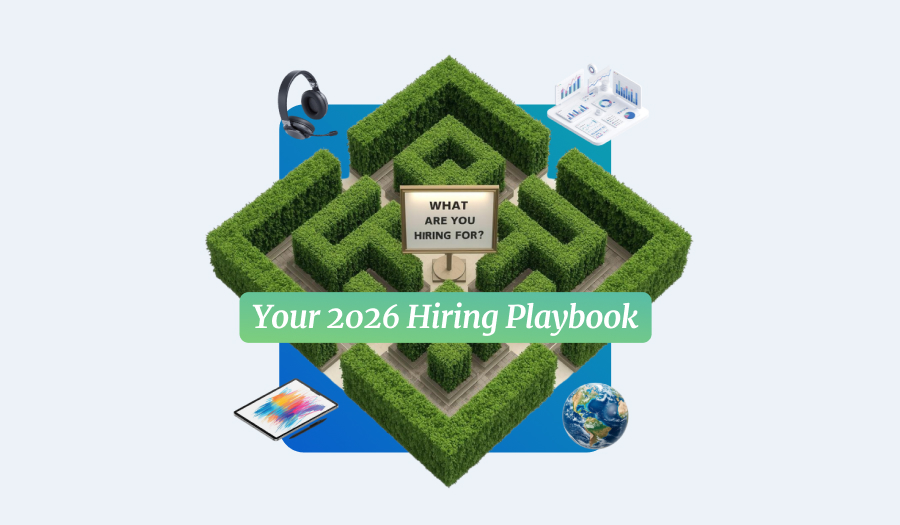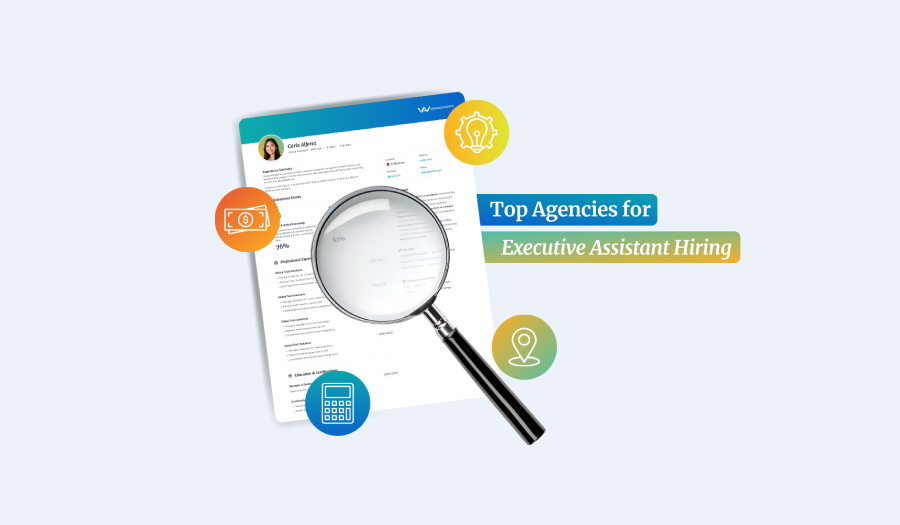Everything You Need to Know About Executive Assistant Job Duties
Key Takeaways:
- Executive assistants are now strategic partners, not just administrative support. They keep operations moving so leaders can focus on bigger decisions.
- The role has expanded in 2026, with EAs managing virtual calendars, digital workflows, and cross-time-zone coordination as remote and hybrid work dominate.
- Modern EA responsibilities go far beyond scheduling. They handle communication, travel, project support, documentation, confidential information, and stakeholder coordination.
- The most in-demand skills include organization, communication, discretion, tech fluency, and the ability to adapt to constant changes in executive priorities and work environments.
- Experience levels shape the scope of work. Entry-level EAs handle core admin tasks, while senior and specialist EAs support C-suite leaders, manage high-stakes projects, and often lead other assistants.
- A strong EA has a direct impact on organizational efficiency. They reduce friction, prevent missed opportunities, improve communication flow, and help leadership stay focused on work that drives results.
Executive assistants have come a long way from their traditional admin roots. Today, they're the people who keep the gears turning in any successful organization. From juggling packed executive calendars to orchestrating important meetings and managing confidential information, EAs work behind the scenes to make sure everything clicks into place.
This guide dives into what executive assistants actually do day-to-day, pulling from real-world hiring insights across different platforms.. We'll cover what companies are really looking for when they hire EAs, the skills that matter most, and how the role is changing as we move through 2026. If you’ve ever wondered what an executive assistant does or what a typical executive assistant job description looks like, this guide breaks down the role, duties, and responsibilities in clear, practical terms.
What Does an Executive Assistant Do?
An executive assistant is a high-level administrative professional who does much more than traditional secretarial work. They're strategic partners to senior leadership, handling the day-to-day operations so executives can focus on the big decisions. Their typical responsibilities include managing communications, coordinating meetings and travel, and preparing documents and presentations.
With remote and hybrid work now the norm, executive assistants are also managing virtual calendars, facilitating digital collaboration, and serving as the connection point between teams spread across different locations and time zones.
An executive assistant is a senior-level administrative partner who manages scheduling, communication, and follow-through so executives can focus on leadership and decision-making.
Executive Assistant Job Duties and Responsibilities
Core executive assistant duties vary by organization, but these executive assistant tasks show up in most job descriptions. Here are the main responsibilities you'll typically see in executive assistant job descriptions:
- Calendar & Schedule Management: Core executive assistant duties include juggling meeting requests, keeping complex calendars organized, preventing double-bookings, and making sure the executive's time is used wisely.
- Communication Coordination: These executive assistant tasks involve filtering and routing emails, phone calls, and walk-in visitors, basically being the gatekeeper between the executive and everyone else, both inside and outside the company.
- Travel & Logistics Planning: A key responsibility in many executive assistant job descriptions includes arranging flights, hotels, and transportation, putting together detailed travel plans, and handling travel budgets and expense reports.
- Document & Presentation Preparation: Executive assistant job responsibilities often include writing emails and letters, creating presentations, taking and summarizing meeting notes, and organizing project materials.
- Confidential Information & Liaison Role: Among the most critical executive assistant duties is handling sensitive information, serving as the go-between for executives and other departments or outside contacts, and keeping everything confidential.
- Project & Task Management: Many executive assistant tasks extend into helping with or running special projects, keeping tabs on progress, coordinating resources, and making sure everything gets done on time.
- Office/Team Support: Executive assistant responsibilities may include managing general office operations, ordering supplies, supporting other administrative staff, and helping coordinate team activities, especially when you're supporting multiple leaders instead of just one.
- Remote/Hybrid Adaptation: In modern executive assistant job descriptions, tasks often include managing virtual meeting tools, coordinating across different time zones, keeping digital workflows running smoothly, and helping executives maintain their presence online.
Core executive assistant duties include managing calendars, coordinating communication, handling confidential information, and supporting projects that keep leadership teams running smoothly.
Skills and Qualifications Needed for the Executive Assistant Role
Most executive assistant job requirements include a combination of organizational ability, communication skills, technical proficiency, and professional judgment, as outlined in the role description. When you're hiring or applying for an executive assistant position, here are the key skills and qualifications that typically come up:
- Strong organizational skills & ability to multi-task: Think managing packed calendars, handling competing priorities, and keeping everything on track to meet deadlines.
- Great communication skills, both written and verbal: You'll be writing emails on behalf of executives and dealing with important stakeholders regularly.
- Trustworthiness and discretion: Executive assistants handle confidential information all the time, so being someone people can trust is essential.
- Comfort with technology: You should know your way around calendar apps, Microsoft Office or Google Workspace, Zoom, Slack, and other tools that keep the office running smoothly.
- Solid experience: Most executive assistant roles, especially those supporting senior leadership or C-suite executives, want someone with a few years of administrative or EA experience under their belt.
- Flexibility and the ability to roll with the punches: Last-minute changes, travel coordination, working across time zones, and shifting priorities are all part of the job.
- Professionalism: A professional demeanor, good people skills, and the knack for anticipating what your executive needs before they even have to ask.
Successful executive assistants combine strong organizational skills, clear communication, discretion, and technical proficiency to handle complex executive assistant tasks effectively.
Experience, Education, and Training Requirements
In many executive assistant job descriptions, employers clearly outline required experience, education, and training based on the level of executive support needed. Job requirements differ depending on the company and position, but here's what you can generally expect:
- Experience: Most employers look for candidates who've worked as an executive assistant, administrative assistant, or in office management before. If you're aiming for a senior position supporting top executives, you'll likely need anywhere from 5-8 years of experience under your belt, sometimes even more.
- Education: A bachelor's degree is usually preferred, though it's not always a deal-breaker. Some companies will consider an associate degree if you have solid, relevant experience to back it up.
- Certifications or specialized training: Having credentials like a Microsoft Office Specialist (MOS) certification or completing an advanced executive assistant program can definitely give you an edge.
- Ongoing learning: The role keeps changing with new digital tools, remote work setups, and global teams, so staying current matters. Taking courses in project management, communication skills, or the latest tech platforms will make you a stronger candidate.
Most executive assistant job descriptions outline several years of administrative experience, relevant education, and ongoing training to meet evolving role demands.
Executive Assistant Job Duties: Senior vs Entry-Level
Knowing how responsibilities shift with experience helps you structure roles more clearly and set realistic hiring expectations.
What is an EA Job at the Entry Level?
- Works with one executive or a small group of leaders
- Handles calendar management, travel booking, and email correspondence
- Puts together straightforward reports and takes care of general administrative work
- Typically has 1-3 years of experience and works with regular oversight
What is an EA Job at the Mid-Level or Senior-Level?
- Supports C-suite executives or larger leadership groups
- Juggles complicated schedules across different time zones and coordinates extensive travel arrangements
- Helps move strategic projects forward, takes the lead on smaller initiatives, and might oversee junior admin staff
- Brings 5+ years of experience and works independently with minimal guidance
What is an EA Job in a Specialist or Leadership Role?
- Partners with C-suite leaders across multiple regions and may manage a team of assistants
- Gets involved in strategy discussions, serves as a board liaison, supports investor relations, and interacts with high-level stakeholders
- Needs substantial experience (8-10+ years), an exceptional skill set, and often handles confidential business matters
Executive assistant job responsibilities expand with experience, from foundational coordination tasks at the entry level to strategic and leadership support at senior levels.
Why These Duties Matter to Your Organization
A great executive assistant makes their executive more productive, keeps everything running smoothly, and clears the way for leadership to focus on what matters most. When done right:
- Decisions happen faster because the calendar, communications, and logistics just work
- Dropped meetings and crossed wires become rare
- The executive shows up prepared and polished, whether in the room or on screen
- Leaders spend less time on admin and more time on work that moves the needle
- Relationships with people inside and outside the organization get the attention they deserve
Clearly defined executive assistant duties improve productivity, reduce executive workload, and create smoother communication across the organization.
Industry & Virtual Environment Trends You Need to Know
- Remote & hybrid support: Executive assistants are working with leaders scattered across different locations more than ever, which means getting really comfortable with several apps and juggling calendars across time zones, and keeping communication flowing when everyone's not in the same place.
- Project management emphasis: The job has grown beyond traditional admin work, a lot of EAs now wear a project manager hat too, keeping initiatives on track and making sure things actually get done, especially at fast-moving companies.
- Strategic interface: This isn't just about scheduling meetings anymore. EAs are connecting with key stakeholders, helping craft communications, and sometimes even pulling together data or insights to help executives make better decisions.
- Tech-savvy requirement: You need to be comfortable with technology, everything from calendar apps and CRM systems to Slack, Asana, or whatever collaboration tools your company uses. Digital fluency is pretty much non-negotiable now.
- Diversity of responsibilities: Depending on where you work, you might find yourself doing a bit of everything -HR tasks, coordinating office logistics, planning events, tracking expenses, and yes, sometimes handling personal errands for your executive too.
Modern executive assistant roles increasingly support remote and hybrid executives, requiring digital fluency, time-zone coordination, and project-focused support.
Frequently Asked Questions (FAQs)
Q: What does an executive assistant do day to day?
A: Day-to-day executive assistant duties typically include managing calendars, coordinating meetings, handling communications, preparing documents, and supporting projects to keep executives focused on priorities.
Q: What is an executive assistant vs an EA job?
A: “Executive assistant” and “EA job” refer to the same role. EA is simply the shortened title commonly used in job descriptions and hiring discussions.
Q: What are typical executive assistant job duties and responsibilities?
A: Typical executive assistant job responsibilities include scheduling, communication management, travel planning, document preparation, project coordination, and handling confidential information.
Q: What's the difference between an Executive Assistant and an Administrative Assistant?
A: Executive Assistants usually work directly with top-level executives, think VPs or C-suite, and often take on more strategic responsibilities beyond just admin work. Administrative Assistants tend to support wider teams or middle managers and handle more of the everyday office tasks and scheduling.
Q: Can an Executive Assistant role be remote?
A: Absolutely. More and more companies are offering hybrid or fully remote options for this role, particularly when executives are frequently traveling or managing teams across different locations. You'll need to be comfortable juggling remote collaboration tools, managing communication across time zones, and staying connected even when you're not in the same room.
Q: What traits make a successful Executive Assistant?
A: The best EAs are incredibly organized, proactive, and professional. You need to be discreet, communicate clearly, stay on top of technology, and learn to anticipate what your executive needs before they even ask for it.
Q: How do I write an effective job description for an Executive Assistant?
A: Start by being specific about who they'll be supporting and what your company looks like. List out the actual responsibilities like managing calendars, coordinating travel, handling communications, etc. and be clear about what skills and experience you're looking for. If there's something distinctive about your workplace (remote setup, global team, startup pace), mention that upfront. Including terms like "executive assistant responsibilities," "C-suite support," or "remote executive assistant" will also help the right candidates find you.
Final Thoughts
The executive assistant role has come a long way from simply answering phones and filing paperwork. Today's EAs are true strategic partners to leadership, handling everything from complex calendar coordination to communications and project management. Understanding what the job actually entails is essential whether you're hiring for the position or pursuing one yourself.
With remote work becoming the norm and companies leaning heavily on their leadership teams, talented executive assistants are more valuable than ever.
If you're writing a job posting or getting ready to step into an EA role, think carefully about the scope of work, the skills required, and how the position fits with the executive's specific needs. When your job description reflects what the role actually looks like day-to-day, you'll find better candidates and create clearer expectations from the start.
If you need a talented executive assistant, AbroadWorks helps you find pre-screened offshore professionals who provide dependable, top-notch support without the hefty price tag.






